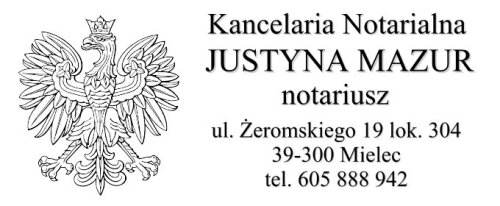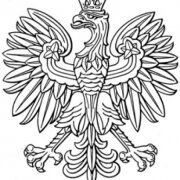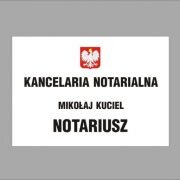Best Trusts Lawyers in Poland
Share your needs with us, get contacted by law firms.
Free. Takes 2 min.
Or refine your search by selecting a city:
List of the best lawyers in Poland
About Trusts Law in Poland
Trusts, as understood in Anglo-Saxon legal systems, do not have a direct equivalent in Polish law. Poland, being a civil law jurisdiction, traditionally relies on other forms of legal instruments for managing property and assets, such as wills, contracts, or foundations. Trusts that are recognized in Poland typically arise in a cross-border context, where funds or assets are held in a trust jurisdiction outside Poland. The lack of a domestic trust law framework does not preclude the use of trusts recognized under other legal systems, but proper structuring and legal advice are paramount to ensure compliance with Polish regulations.
Why You May Need a Lawyer
Understanding and navigating the complexities of trusts can be challenging, especially given that Poland does not have a native trust law framework. You might need a lawyer in situations such as:
- You are a beneficiary or settlor of an international trust that needs compliance with Polish regulations.
- You wish to structure your estate planning involving foreign trusts to optimize inheritance and tax planning.
- You are involved in cross-border wealth management and require an understanding of how trusts interplay with Polish laws.
- You seek to enforce or challenge a trust deed in Polish courts.
Local Laws Overview
The key aspects of local laws that relate to trusts in Poland generally involve the interaction with international legal frameworks. These include:
- No formal recognition of domestic trust structures under Polish civil law.
- Applicability of international treaties and EU regulations regarding cross-border trusts.
- Relevant tax implications for foreign trusts impacting residents or assets situated in Poland.
- Regulation by Polish laws concerning testamentary dispositions and foundations that serve similar purposes to trusts.
Frequently Asked Questions
What is the status of trusts under Polish law?
Trusts do not have independent legal status under Polish law. They are indirectly recognized chiefly through international arrangements.
Can trusts be used for estate planning in Poland?
Trusts can be part of estate planning in Poland, especially through cross-border arrangements, subject to proper legal structuring to ensure recognition and compliance.
What are the tax implications of having a trust in Poland?
Tax implications vary depending on the trust's structure and beneficiaries' tax residency. Consultation with a tax professional is crucial for accurate advice.
Can a Polish court enforce a foreign trust?
Enforcement depends on the nature of the trust and its compliance with Polish legal principles and any applicable international treaties.
What alternatives to trusts are available in Poland for asset management?
Alternatives include establishing a foundation or using testamentary instruments for managing and distributing assets.
How can a resident of Poland set up a trust abroad?
You must comply with the rules of the jurisdiction where the trust is to be established and consider Polish tax and legal implications.
Are trusts recognized under EU law applicable to Poland?
Trust recognition under EU law generally applies through mutual agreements, and Polish regulations may apply additional requirements.
What is the role of a trustee for Polish residents?
A trustee manages the trust’s assets on behalf of beneficiaries, and their duties must align with both the governing jurisdiction and Polish laws where applicable.
Are protective measures in place for Polish beneficiaries of a foreign trust?
Yes, but these measures may depend on the structuring of the trust and the legal recourse available in the jurisdiction where the trust is registered.
Who governs disputes related to trusts in Poland?
Disputes may be adjudicated by courts in the jurisdiction of the trust's registration, but Polish courts may also have jurisdiction depending on the case specifics.
Additional Resources
For those seeking more information or assistance on trusts in Poland, the following resources may be helpful:
- Ministry of Justice of Poland: Offers guidance and resources on various legal issues, including estate planning.
- Polish Bar Council: Provides a directory of legal professionals who can assist with international estate planning and trust-related queries.
- Local law firms specializing in private client law, international estate planning, and tax advisory services.
Next Steps
If you require legal assistance concerning trusts in Poland, consider the following steps:
- Consult with an attorney specializing in international estate planning and Polish civil law.
- Determine the exact nature of your needs and gather all relevant documentation regarding your trust or estate planning concerns.
- Arrange a consultation to discuss potential legal obligations and strategies to fulfill your objectives while remaining compliant with both Polish and international laws.
Taking informed action helps ensure legal compliance and effective management of your estate and assets, both domestically and internationally.
Lawzana helps you find the best lawyers and law firms in Poland through a curated and pre-screened list of qualified legal professionals. Our platform offers rankings and detailed profiles of attorneys and law firms, allowing you to compare based on practice areas, including Trusts, experience, and client feedback.
Each profile includes a description of the firm's areas of practice, client reviews, team members and partners, year of establishment, spoken languages, office locations, contact information, social media presence, and any published articles or resources. Most firms on our platform speak English and are experienced in both local and international legal matters.
Get a quote from top-rated law firms in Poland — quickly, securely, and without unnecessary hassle.
Disclaimer:
The information provided on this page is for general informational purposes only and does not constitute legal advice. While we strive to ensure the accuracy and relevance of the content, legal information may change over time, and interpretations of the law can vary. You should always consult with a qualified legal professional for advice specific to your situation.
We disclaim all liability for actions taken or not taken based on the content of this page. If you believe any information is incorrect or outdated, please contact us, and we will review and update it where appropriate.
Browse trusts law firms by city in Poland
Refine your search by selecting a city.
















